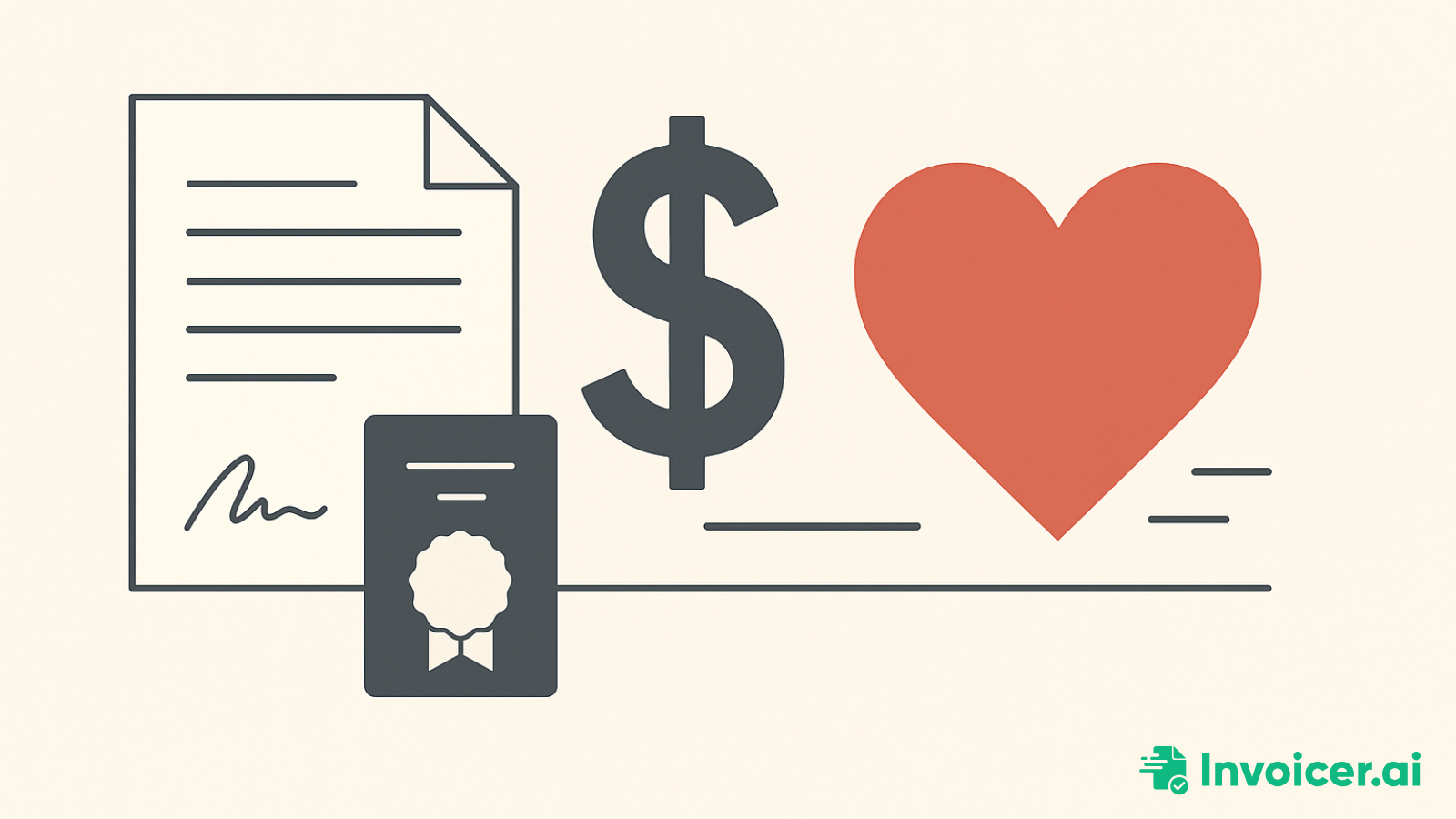
We've all heard the phrase: "Don't take it personally. It's just business."
On the surface, it sounds like a clean line between logic and emotion. Business is about contracts, numbers, and efficiency. Personal life is about feelings, values, and relationships. However, anyone who's run a small business, freelanced, or poured their energy into a project knows this isn't the reality.
When a client ghosts you after weeks of back-and-forth, it stings. When an invoice goes unpaid, it feels like they're disrespecting you. When a competitor underbids you, it feels like your value has been overlooked.
These aren't just business moments. They're very personal.
The truth is, business is personal. And pretending it isn't often causes more harm than good. In this blog post, we'll dive deep into why business decisions affect us so strongly, the psychology behind that feeling, and how tools like professional estimates and invoices can help you navigate the emotional side of work with clarity and confidence.

Most of us tie our self-worth to the work we do. Your business isn't only a revenue stream, but also the result of years of learning, countless hours of practice, and the relationships you've built. When someone dismisses your work, it feels like they're dismissing you personally.
Money is tied to survival, freedom, and security. An unpaid invoice can trigger not just frustration but anxiety about bills, investments, or the future. That's why payment delays don't feel like small inconveniences—they hit at your sense of safety.
Business isn't built on numbers alone. It also depends on trust. When you build a client relationship over time, you go beyond simple transactions and create a bond. When that bond breaks, the disappointment feels personal because, in many ways, it truly is.

The more time and energy you put into something, the harder it is to detach. Losing a job you half-heartedly quoted is one thing. Losing a bid you spent hours perfecting feels like a rejection of your best effort.

To understand why we often take business matters to heart, it helps to look at the psychology beneath the surface. Our reactions are shaped by emotions, identity, and trust, which are factors that go far beyond numbers on a page.

Neuroscience shows that the brain lights up with reward signals when effort pays off. When effort is ignored or undervalued, it activates pain centers. This is why rejection or underpayment hurts.

Humans are wired to feel losses twice as strongly as gains. When a client disappears or a project is canceled, the sense of loss overshadows any logical explanation.

Business owners and freelancers often do more than just deliver work. They also manage client anxieties, explain processes, and build trust. That emotional labor is rarely compensated, yet it creates attachment. When things go wrong, the emotional investment intensifies the sting.

The phrase may be intended to comfort, but often it invalidates real feelings.
If anything, acknowledging that business is personal builds stronger relationships. Clients feel respected. Colleagues feel valued. Trust deepens.
You've already delivered the work. The value is clear. And yet, payment is delayed. Chasing it feels degrading. Each follow-up feels less like professionalism and more like begging to get paid.
You did your homework, quoted fairly, and explained the value. Losing the job to someone charging half feels like your expertise was overlooked. Rationally, you know budgets matter. Emotionally, it feels like rejection.
They seemed loyal. They praised your work. Then one day, no replies. Losing money is bad enough, but the sudden break in trust makes it worse.
A client calls your work "not good enough." It may be about preference or miscommunication, but it feels like a hit to your identity.
The goal isn't to harden yourself, but to create structures that protect your energy.
Clear and detailed estimates and invoices reduce misunderstandings. Instead of defending your value, you point to a document that does it for you.
With Invoicer.ai, you can send unlimited professional estimates and invoices that describe the scope of work, terms, and payment details.
If a client says no, it doesn't mean you're bad at your work. It means they weren't the right fit. Remember, every "no" frees you to find a better "yes."
Including deposits, milestone payments, and late fee terms transforms an agreement into accountability. They not only protect you but also show clients that you respect your work and expect it to be treated the same way.
Not every client is your client. The more you focus on finding those who respect your process, the less personal rejections feel.
The paradox is this: the more professional your systems, the less personal conflicts feel.
Sometimes, the hardest part is finding the right words. Here are examples you can adapt:
Running a business means more than delivering great work. It also requires managing expectations. Invoicer.ai makes this easier by bringing professionalism to every step.
This way, instead of draining energy on disputes, you focus on delivering value.
In some cultures, business is highly relational. Contracts are important, but trust and connection matter more. In others, transactions are transactional, where personal relationships are secondary.
Understanding this helps you adapt. For example:
"It's just business" is meant to separate feelings from decisions. But in reality, business is human. It's built on relationships, trust, money, and effort—all things that are inherently personal.
The goal is not to pretend you don’t care. The real focus is on creating systems that protect you from burnout while still honoring the humanity of your work. Clear communication, professional paperwork, and strong boundaries do not remove emotion from business; they create space for it to exist in healthier ways.
Try Invoicer.ai free for 14 days today, and make getting paid the easiest, least stressful part of your work.